Writing an apology letter to a client is an essential step in maintaining a positive relationship, especially when mistakes occur. It's important to express genuine remorse while also providing reassurance that their concerns are taken seriously. A well-crafted apology can turn a challenging situation into an opportunity for growth and trust. If you're looking for guidance on how to effectively communicate your sentiments, read on for some helpful tips and templates!

Formal Salutation
Apology letters to clients require a careful approach, emphasizing sincerity and a strong commitment to rectifying the issue. In a formal context, it's important to address the client appropriately, using their title and last name. Beginning with "Dear" followed by the client's title (Mr., Ms., Dr.) and last name sets a respectful tone. For example, "Dear Mr. Smith" not only acknowledges the client's status but also establishes a tone of professionalism. A clear and concise explanation of the situation, coupled with an expression of regret, will help convey genuine remorse. Providing reassurance of steps being taken to prevent recurrence can further solidify trust.
Clear Acknowledgment of the Issue
Apologies for the inconvenience caused by the recent delay in delivering your order. The extended processing time, which exceeded our usual turnaround of 48 hours, was due to a shortage of materials essential for the product's assembly. We understand that you were expecting your shipment to arrive by the promised date, March 15, 2023, and the delay negatively impacted your operations. We take full responsibility for this oversight and appreciate your understanding during this unforeseen circumstance. Your satisfaction is paramount, and we are committed to rectifying this issue promptly.
Sincere Apology Statement
Apologies to clients often stem from misunderstandings or service-related issues. When an apology is issued, it should convey sincerity and accountability. A well-crafted apology statement addresses specific grievances, acknowledges the impact on the client's experience, and emphasizes a commitment to rectifying the situation. For instance, a company may apologize for a delayed product delivery which caused inconvenience during a crucial project timeline. The statement could express regret over the missed deadline, outline steps taken to prevent similar occurrences, and reaffirm the organization's dedication to customer satisfaction. Such an approach not only helps mend relationships but also strengthens trust in business interactions.
Explanation of the Situation (if necessary)
Unforeseen disruptions in service delivery can lead to client dissatisfaction, particularly in sectors like e-commerce or customer service. Recent supply chain delays, primarily due to global shipping constraints, have affected multiple orders. For instance, shipments from major logistics hubs like Shanghai and Los Angeles experienced significant holdups, causing delays exceeding two weeks. Furthermore, unexpected staffing shortages related to health guidelines may have resulted in slower response times. Acknowledging these factors, it is essential to reassure clients that their concerns are prioritized and remedial actions are actively being implemented to enhance service efficiency and regain trust.
Assurance of Corrective Actions
Apologies to clients regarding service issues, like product defects or missed deadlines, emphasize accountability and corrective measures. A thorough acknowledgment of the problem, for instance, a software bug affecting over 1,000 users, showcases the seriousness of the situation. Communication about implementing quality control measures, such as hiring a dedicated quality assurance team, demonstrates commitment to improvement. A timeline for resolution, like fixing the issue within two weeks, reassures clients that their concerns are prioritized. Additionally, offering compensation, such as a 15% discount on the next purchase, reflects a sincere desire to maintain a positive relationship. This level of detail conveys professionalism and ensures clients feel valued despite setbacks.

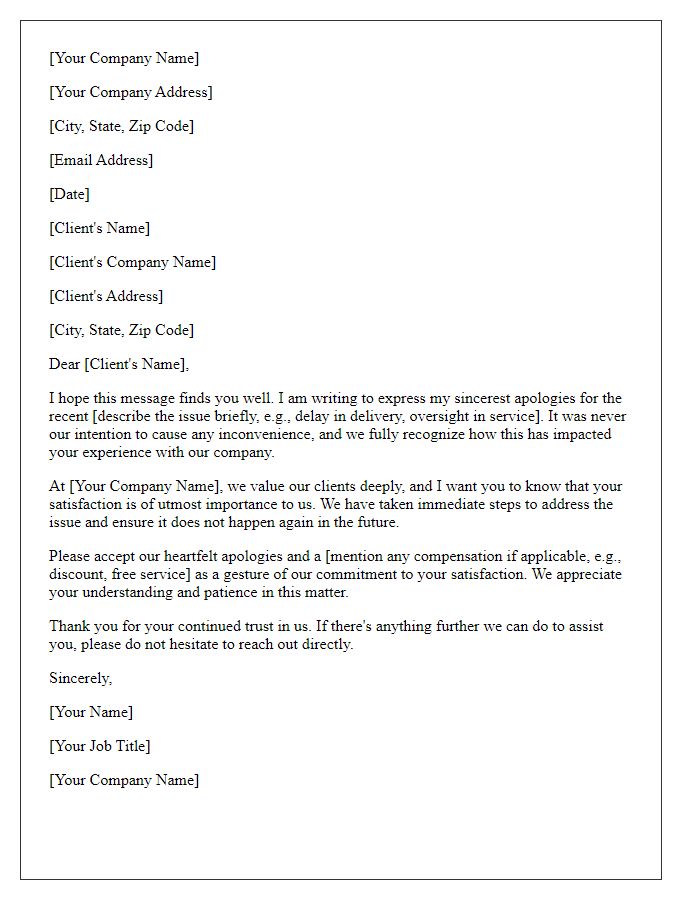
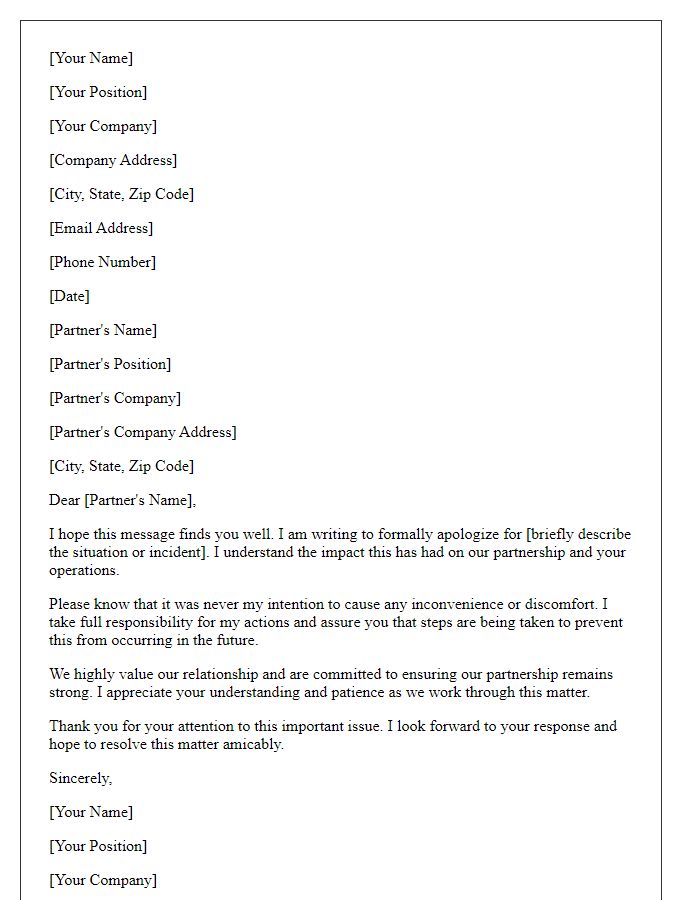
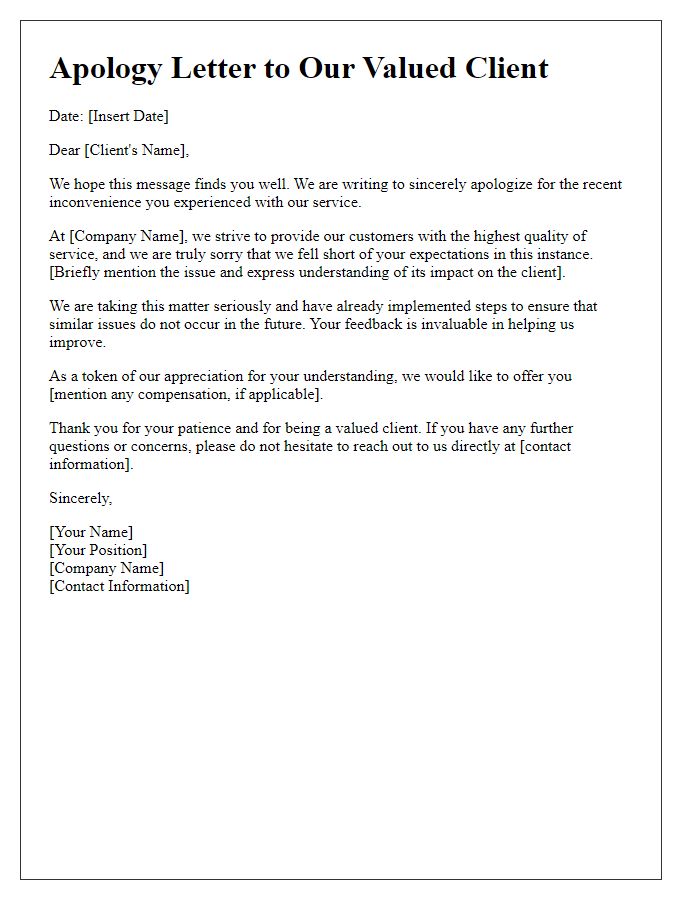
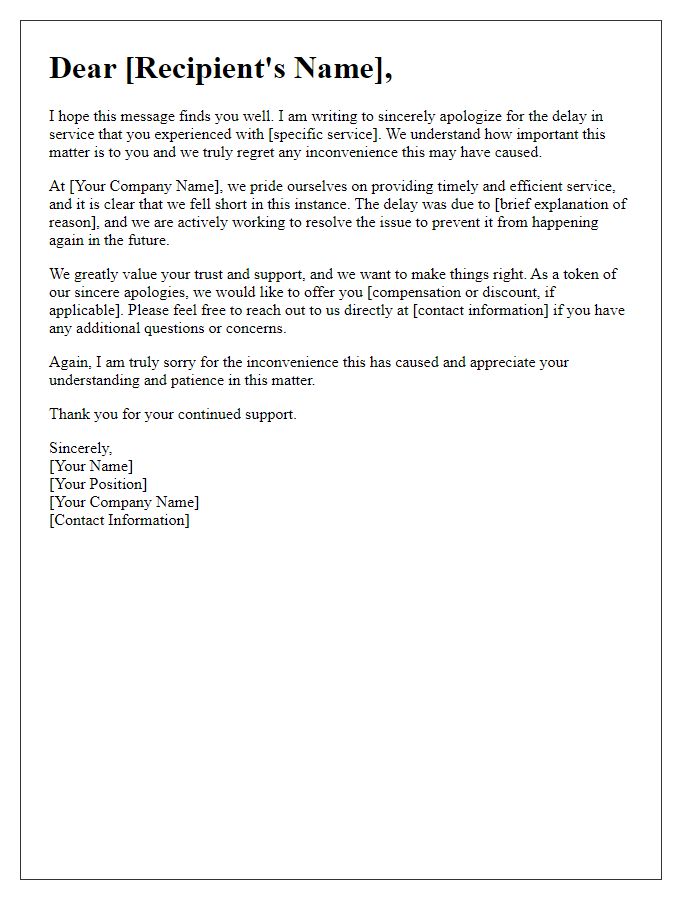
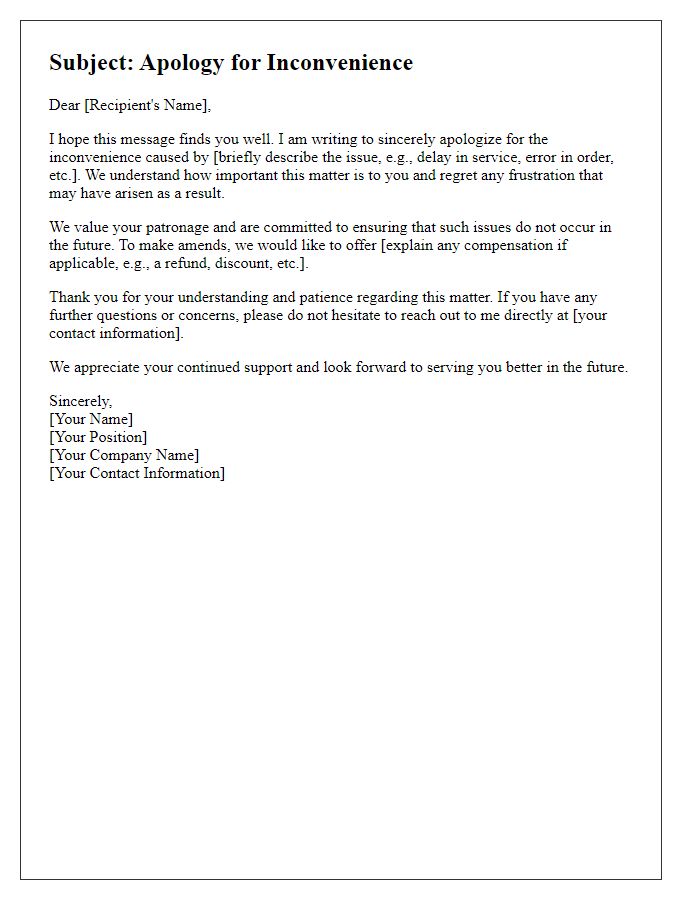
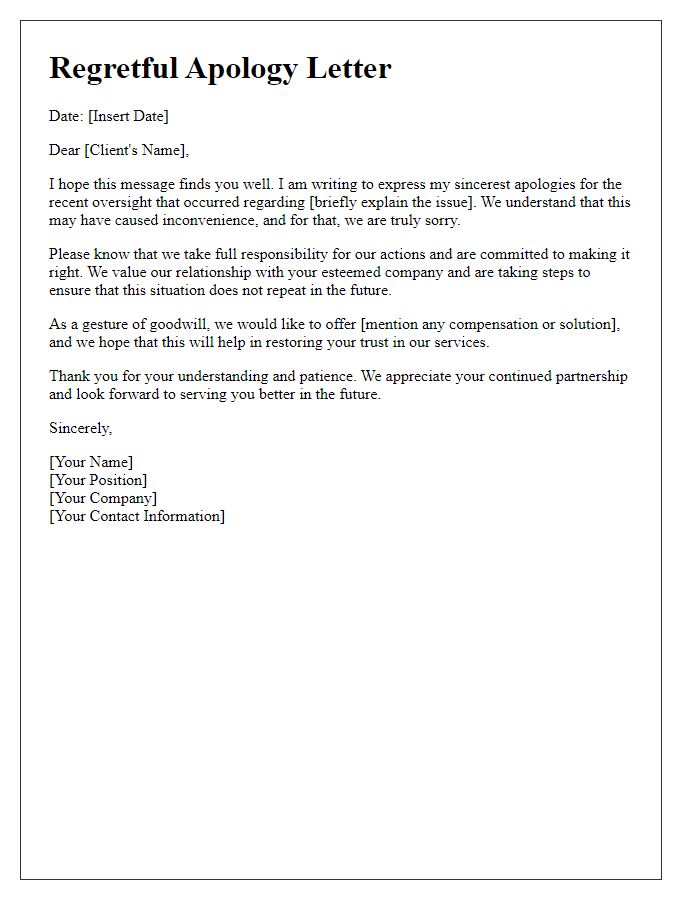
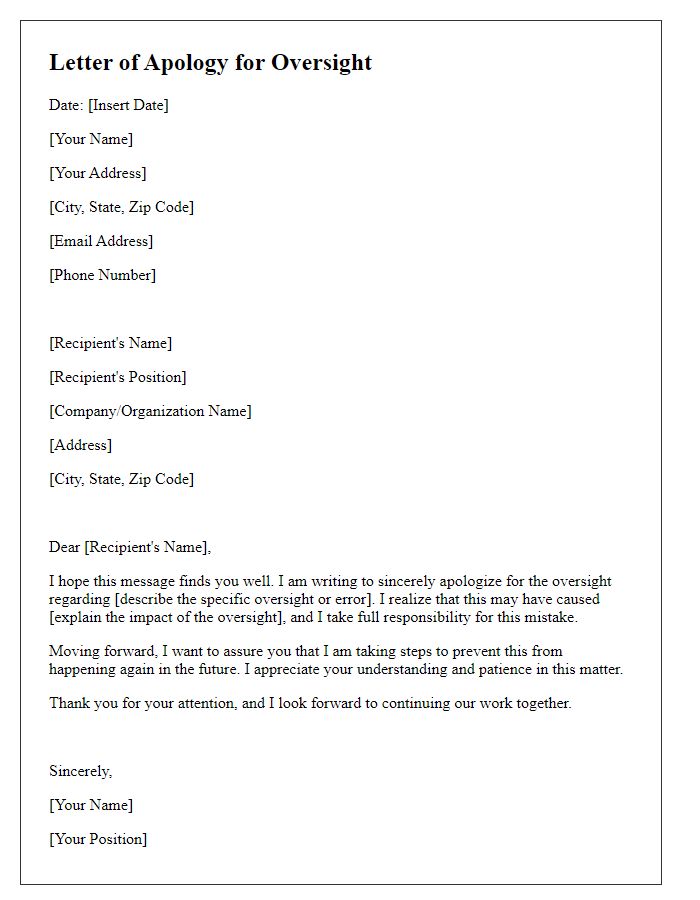
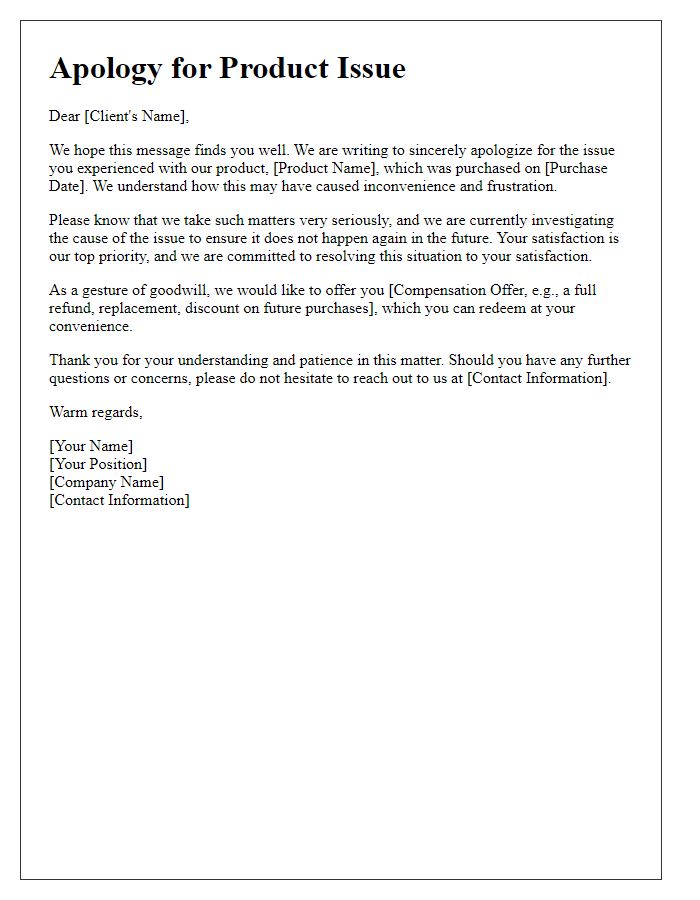
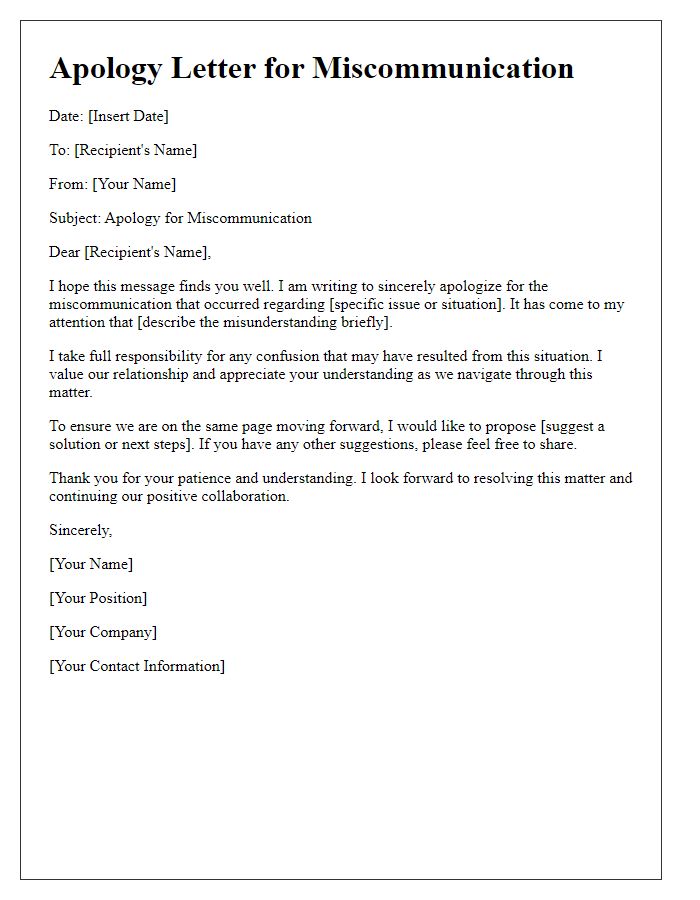
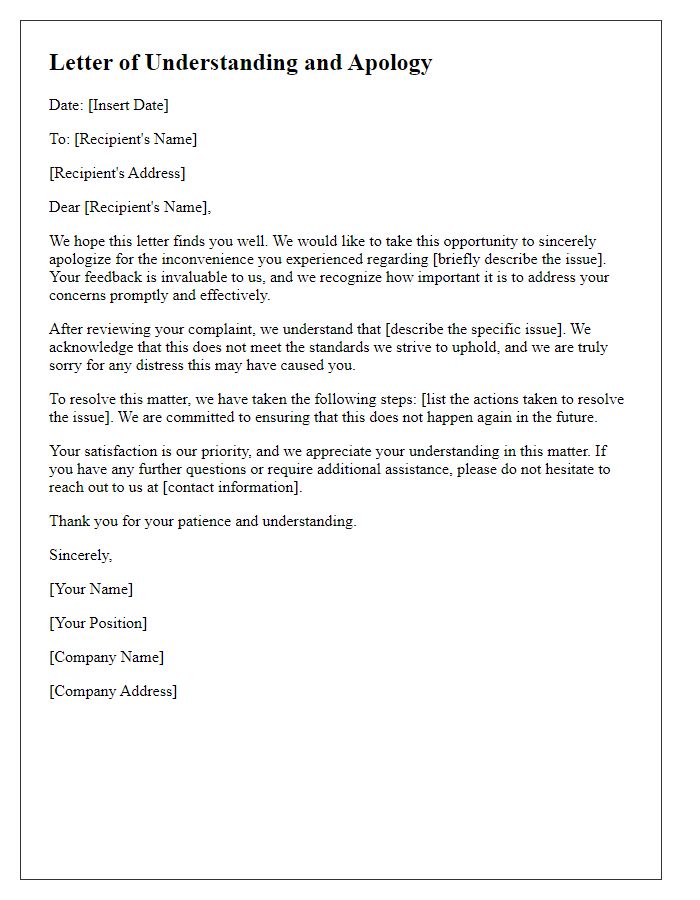


Comments